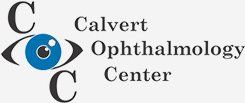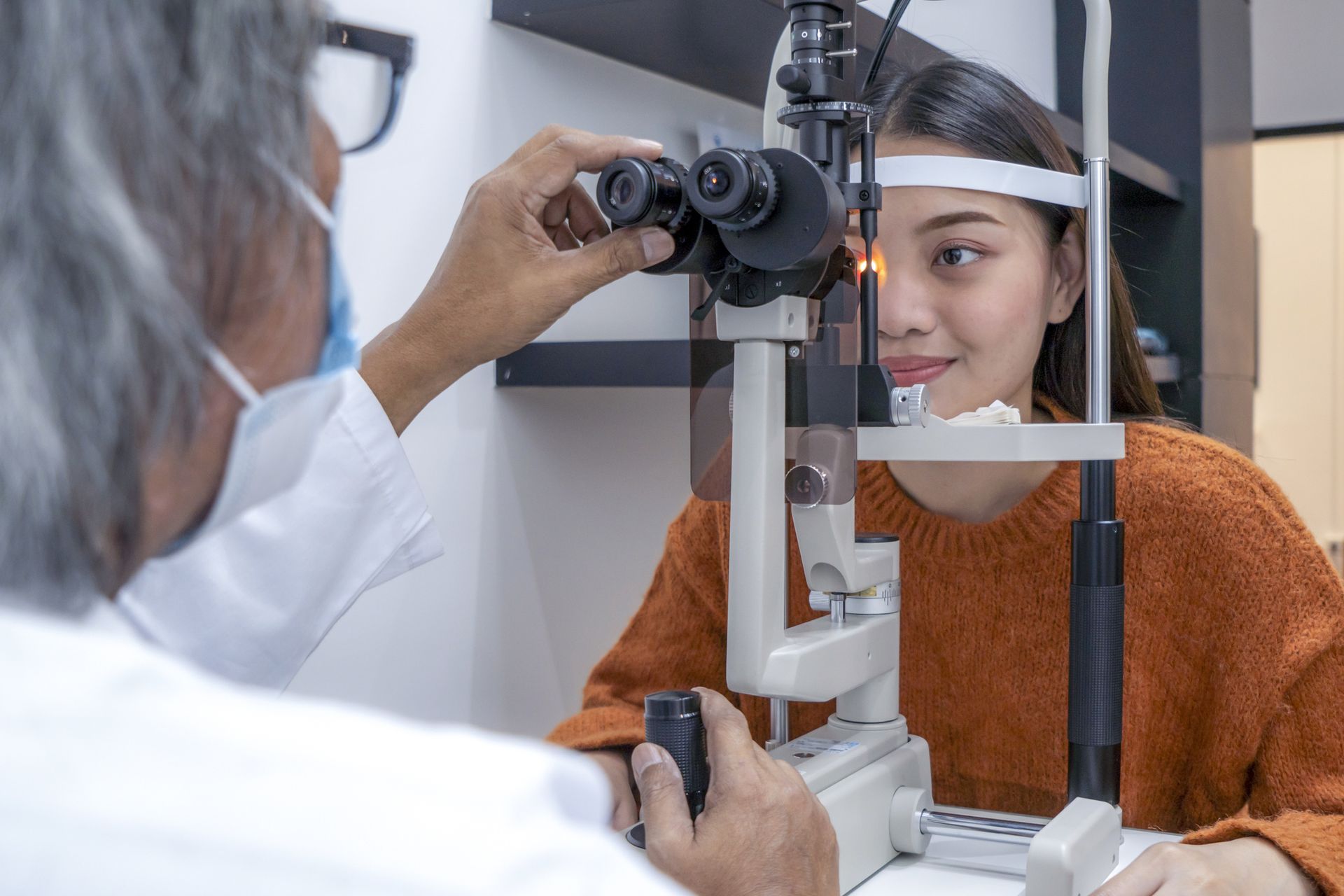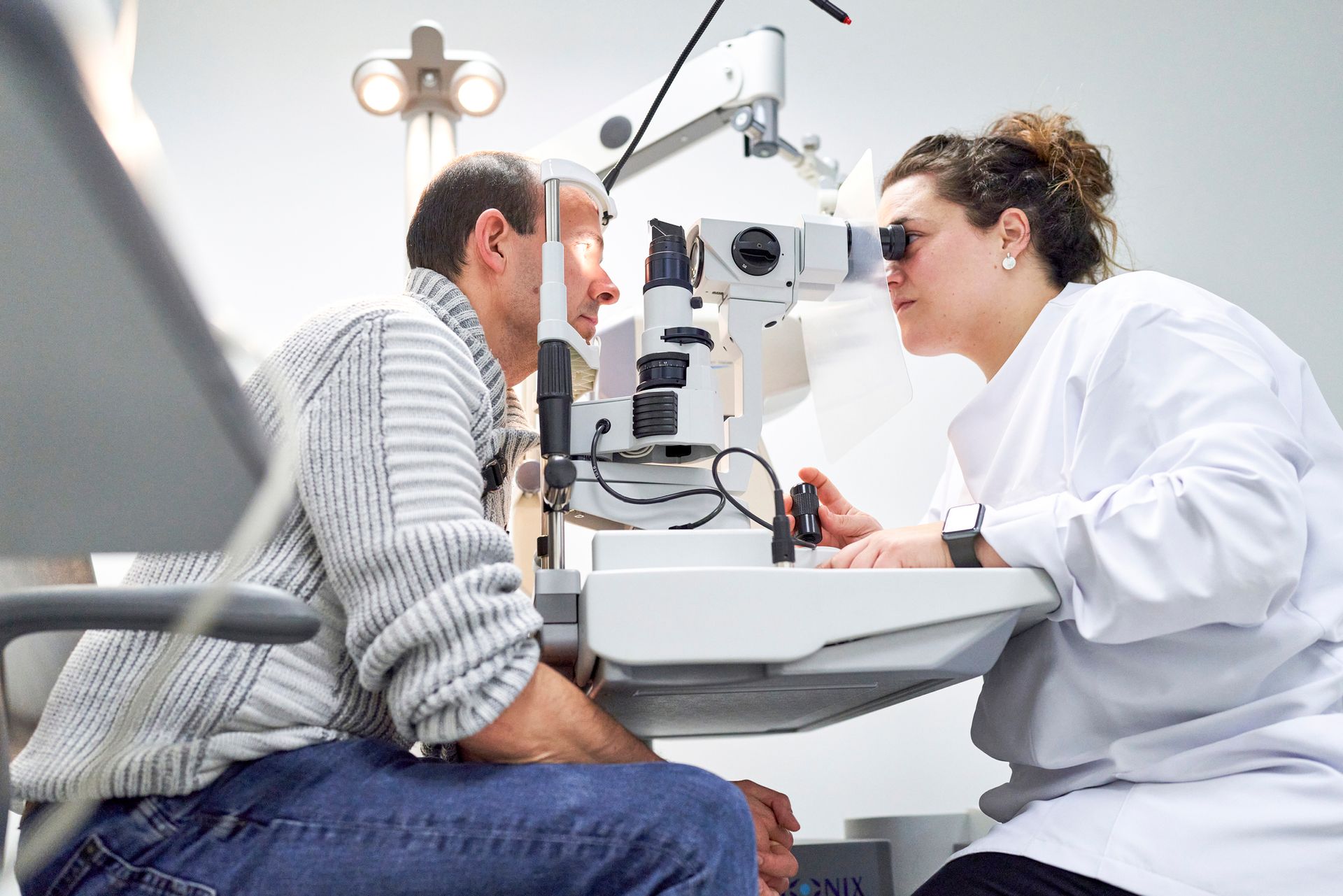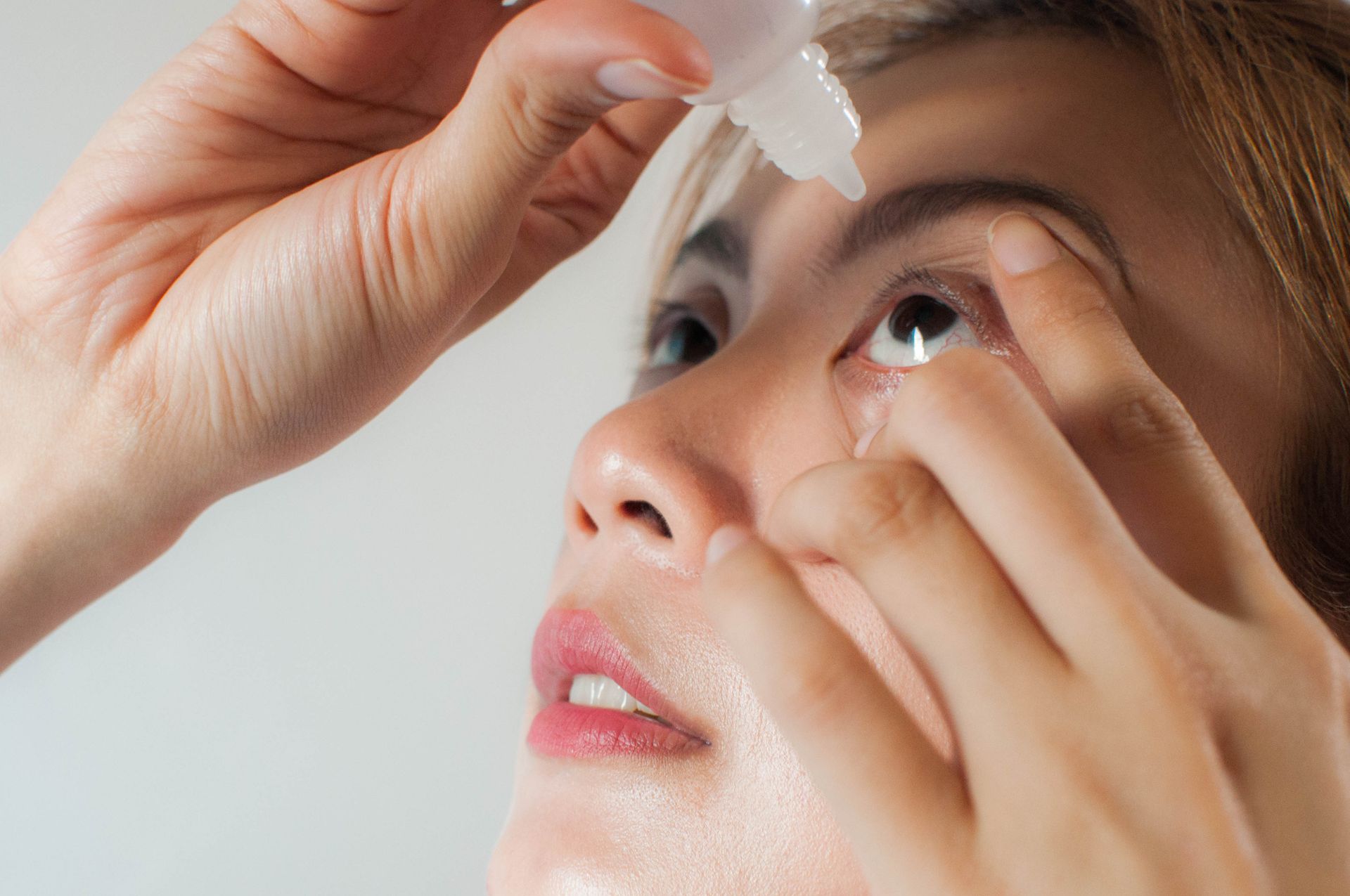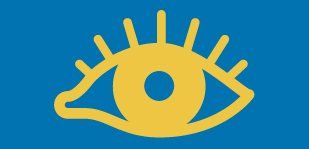High Blood Pressure Can Be a Cause of Vision Problems
Admin • May 8, 2018

If left untreated, high blood pressure — also known as hypertension — can lead to a number of serious health conditions. High blood pressure can not only lead to heart disease, stroke, and kidney disease but also vision problems.
When you suffer from high blood pressure over a prolonged period of time, damage can occur to the blood vessels of the brain and tiny blood vessels in your eyes. This can lead to cell death and stroke. Eye diseases such as retinopathy, optic neuropathy, and choroidopathy can also develop, impairing your vision.
Stroke
Stroke is a possible complication of high blood pressure that can lead to vision loss. High blood pressure weakens and narrows blood vessels. This reduces blood flow, depriving part of your brain of oxygen. As a result, damage can occur to the optic nerve, which transmits nerve impulses from the retina to the part of the brain that interprets visual images.
Vision problems caused by stroke may include blurred vision, reduced visual acuity, double vision, or vision loss to the right or left of the visual field in both eyes. Other vision-related problems that can occur include poor visual memory, visual-spatial inattention, or decreased depth perception.
Depending on the type of visual impairment you experience, treatment for vision deficits caused by stroke include prism eyeglasses, an eye patch, or vision therapy. Therapeutic eye exercises is another option eye care specialists use to improve eye focus, strengthen your eye muscles, and stimulate the area of the brain that processes vision.
Retinopathy
Hypertensive retinopathy is a condition characterized by a lack of blood flow to the retina at the back of the eye. The condition can block and damage blood vessels in the retina, causing symptoms such as blurred vision or blindness.
A sudden increase in blood pressure can also cause the optic nerve to swell. Along with vision changes, which may include dimmed or double vision, swelling of the optic nerve can cause symptoms such as headaches, nausea, and vomiting.
Although lowering your blood pressure with medications, such beta blockers, diuretics, or ACE inhibitors, helps treat hypertensive retinopathy, irreversible eye damage that can lead to permanent vision impairment may occur.
Optic Neuropathy
Nerve damage to the eye can occur when reduced or blocked blood flow damages the optic nerve. Although the condition may cause only temporary vision loss, permanent damage, which can lead to blindness, may occur when the optic nerve doesn't get enough oxygen and treatment is delayed.
Treatment involves controlling blood pressure, which is a risk factor for atherosclerosis — the buildup of fatty deposits in the walls of arteries. This buildup narrows the arteries, causing the loss of blood supply and nutrients to the optic nerve.
Choroidopathy
Choroidopathy, which is the buildup of fluid under the retina, can cause retinal scarring and distorted vision or a blind spot at the center of your field of vision. Generally, the condition affects just one eye at a time, but sometimes, it can occur in both eyes at the same time.
Small tears in the retinal pigment layer cause a leakage of fluid. These tears or breaks increase your risk of a retinal detachment, which can lead to poor vision and blindness. Since a retinal detachment cannot heal on its own, you need surgery to repair it and restore vision loss or prevent vision from getting worse.
Additional symptoms of choroidopathy include distortion of straight lines, objects that look miniature, and colors that look faded from one eye. While many cases of choroidopathy resolve on their own without treatment, laser therapy is an option for more severe visual impairments that the disease may cause.
If you suffer from hypertension and notice changes in your vision, contact Calvert Ophthalmology Center
to schedule a full vision examination. We can detect eye damage high blood pressure may have caused.
Glasses and contacts are two of the most popular choices for improving vision. For assistance deciding which is right for you, read this guide.
Despite diligent care for the muscles and bones, it is unfortunate that athletes often overlook eye health. Read this blog to learn more.
Vision problems can be common as people age. If you're getting older and want to learn more, check out our blog to read about a few common eye problems.
Pink eye can affect both kids and adults. Learn more with this overview of the causes, symptoms, and options for treatment of this eye condition.
Do you wear contact lenses? If so, read our blog to learn about the telltale signs that indicate it's time to replace your lenses.
Have you ever wondered about the impacts of screen time on your eyes? Learn 3 effects of long-term digital eye strain and prolonged screen use.
